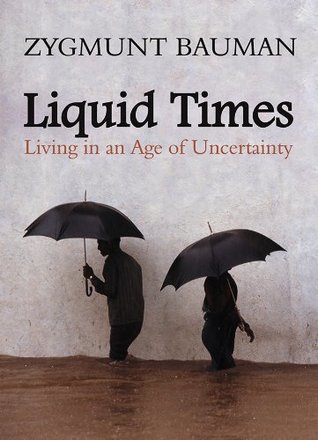More on this book
Kindle Notes & Highlights
Read between
July 27 - August 4, 2020
the responsibility for resolving the quandaries generated by vexingly volatile and constantly changing circumstances is shifted onto the shoulders of individuals – who are now expected to be ‘free choosers’ and to bear in full the consequences of their choices.
The virtue proclaimed to serve the individual’s interests best is not conformity to rules (which at any rate are few and far between, and often mutually contradictory) but flexibility: a readiness to change tactics and style at short notice, to abandon commitments and loyalties without regret – and to pursue opportunities according to their current availability, rather than following one’s own established preferences.
on a planet open to the free circulation of capital and commodities, whatever happens in one place has a bearing on how people in all other places live, hope or expect to live.
‘there is nowhere one can escape to’.
half of world trade and more than half of global investment benefit just twenty-two countries accommodating a mere 14 per cent of the world’s population, whereas the forty-nine poorest countries inhabited by 11 per cent of the world’s population receive between them only a 0.5 per cent share of the global product – just about the same as the combined income of the three wealthiest men of the planet.
all societies lie now fully and truly wide open, materially and intellectually.
the feeling of security was not the sole collateral casualty of war.
Personal freedoms and democracy soon shared its lot.
defensive action gives immediacy and tangibility to fear.
Fear has now settled inside, saturating our daily routines; it hardly needs further stimuli from outside, since the actions it prompts day in, day out supply all the motivation and all the energy it needs to reproduce itself.
That ostensible self-sufficiency is of course only an illusion, just as it was in the case of numerous other mechanisms claiming the miracle of self-propelling and self-nourishing perpetual motion.
existential quakes have accompanied humans through the whole of their history, because none of the social settings within which human life pursuits have been conducted have ever offered foolproof insurance against the blows of ‘fate’
‘Fate’ stands for human ignorance and helplessness,
‘in the absence of existential comfort’ people tend to settle ‘for safety, or the pretence of safety’.7
Progress has turned into a sort of endless and uninterrupted game of musical chairs in which a moment of inattention results in irreversible defeat and irrevocable exclusion.
Instead of great expectations and sweet dreams, ‘progress’ evokes an insomnia full of nightmares of ‘being left behind’ – of missing the train, or falling out of the window of a fast accelerating vehicle.
Unable to slow the mind-boggling pace of change, let alone to predict and control its direction, we focus on things we can, or believe we can, or are assured that we can influence: we try to calculate and minimize the risk that we personally, or those nearest and dearest to us at that moment, might fall victim to the uncounted and uncountable dan...
This highlight has been truncated due to consecutive passage length restrictions.
Like liquid cash ready for any kind of investment, the capital of fear can be turned to any kind of profit, commercial or political.
And it is. And so it is personal safety that has become a major, perhaps even the major selling point in all sorts of marketing strategies.
In other words: the displacement of fear – from the cracks and fissures in the human condition where ‘fate’ is hatched and incubated, to areas of life largely unconnected to the genuine source of anxiety. No amount of effort invested in those areas is likely to neutralize or block the source, and so it proves impotent to placate the anxiety, however earnest and ingenious that effort might be.
It is for this reason that the vicious circle of fear and fear-inspired actions rolls on, losing none of its impetus – yet coming no nearer to its ostensible objective.
it is now left to individuals to seek, find and practise individual solutions to socially produced troubles, and to try all that through individual, solitary actions, while being equipped with tools and resources that are blatantly inadequate to the task.
In a world, in other words, in which each individual is left on his or her own while most individuals are tools of each other’s promotion.
The solitary life of such individuals may be joyous and is likely to be busy – but it is bound to be risky and fearful as well. In such a world there are not many rocks left on which struggling individuals can build their hopes of rescue and on which they can rely in case of personal failure.
The new individualism, the fading of human bonds and the wilting of solidarity are engraved on one side of a coin whose other side shows the misty contours of ‘negative globalization’.
On a negatively globalized planet, all the most fundamental problems – the metaproblems conditioning the tackling of all other problems – are global, and being global they admit of no local solutions; there are not, and cannot be, local solutions to globally originated and globally invigorated problems.


